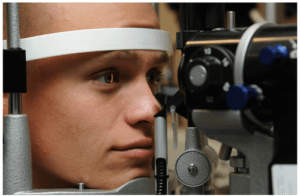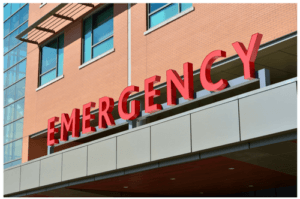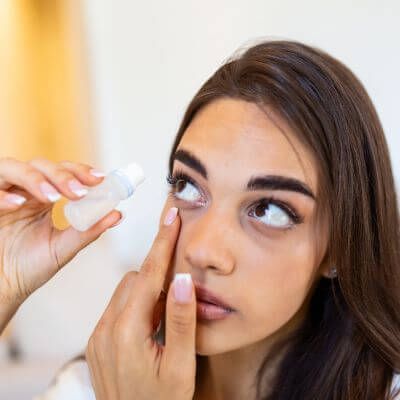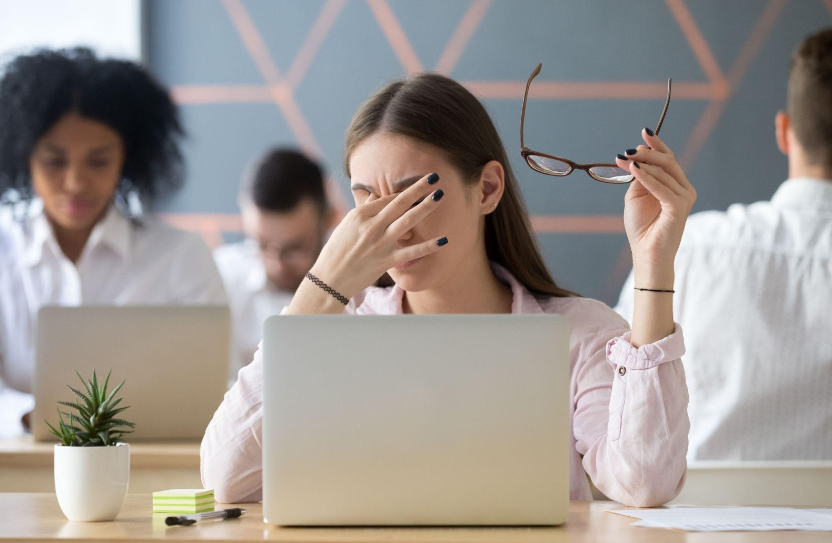What to Do If You Get a Black Eye
More often than not, black eye injuries are minor, resulting from a blow to the eye, nose, or forehead. This causes black and blue bruising and bleeding in the tiny blood vessels in the tissues around the eye, which leads to the discoloration that gives “black eye” its name.
Can I Treat My Black Eye at Home?
In most cases, yes. Black eyes aren’t always an injury to the eye itself. However, there are instances where medical treatment is necessary to help you recover. We’ll cover the signs and symptoms that signal you should have your eye checked by your ophthalmologist.
What to Do If You Get One
The most common symptoms of a black eye are:
- Pain
- Swelling
- Discoloration of the skin around the eye
To reduce these symptoms, apply a cold compress immediately after the injury. The cold compress can be an ice pack or a bag of frozen peas wrapped in a towel.
Although Hollywood often portrays using a cold steak, we don’t recommend doing so. Raw meat is an excellent source of bacteria and could cause an eye infection.
Instead, gently apply a cold compress to the injury for 20 minutes at a time each hour during the first day. You should also keep your head elevated until your black eye heals. Don’t force your eye open if it’s swollen shut. Be patient and keep using the cold compress so the swelling and bruising around the eye will go down.
You can also use over-the-counter pain relievers for discomfort. Be sure to stay away from aspirin since it acts as a blood thinner which worsens:
- Bleeding
- Swelling
- Bruising
Stick to pain relievers such as ibuprofen instead . This will help your eye heal faster and get back to normal faster.
Click here to learn more about the dos and don’ts of eye injuries!
How Long Will It Take to Heal? 
Depending on the severity of the injury, a black eye can take anywhere from one to three weeks to heal. Most black eyes heal on their own with signs of healing in the first week.
Signs of healing include:
- Reduced pain
- Reduced swelling
- Changing colors and fading
You should make an appointment with your eye doctor at Baptist Eye Surgeons if your black eye hasn’t healed after three weeks. Our team of vision care professionals can check your eye for signs of a more severe injury.
When Should I See an Ophthalmologist?
Black eyes can be a severe injury in some cases. Signs that you need to see your ophthalmologist include:
- Severe pain and/or swelling that does not go away after a few days
- Changes in vision
- Signs of infection (fever, warmth, redness, pus-like drainage)
- Double vision
Contact your eye doctor immediately if you experience these symptoms. They may point to a more serious issue that requires immediate treatment.
To meet our East Tennessee eye surgeons, click here !
When Should I Seek Emergency Medical Attention?
Extreme cases need emergency medical attention. Without treatment, you run the risk of developing :
- Traumatic iritis
- Uveitis
- Hyphema
- Glaucoma
- Orbital floor fracture
- Retinal detachment
Unfortunately, it’s not always possible to see your eye doctor on the day of your injury. Go to your nearest urgent care clinic if the wait is over 24 hours and you’re experiencing:
- Double vision or loss of vision
- Inability to move the eye itself (i.e. look around in different directions)
- Blood in the eye or fluid leaking from the eye
- A puncture of the eyeball or other deformity to the eye
- Lacerations (cuts) on the eyelid or eye area
Did You Know?
Only about 15% of black eyes are caused by fighting or violent assaults. Most black eyes are accidents that occur during:
- Contact sports
- While making home repairs
- Work
Protecting your eyes is a priority during any activity. Always use protective eyewear during activities with an increased risk of eye injury.
Have you suffered an eye injury that needs medical treatment? Contact us today to schedule your appointment!
Bruising and bleeding in the tiny blood vessels in the tissues around the eye cause black eyes. They are usually treated at home with over-the-counter pain relievers and cold compresses. Prolonged symptoms may point to a more serious problem. Contact your eye doctor if symptoms persist for the treatment you need.
Baptist Eye Surgeons is an ophthalmological practice in Knoxville, TN, and Morristown, TN. Give us a call at 865-579-3920 for more information or to schedule an appointment .
*This blog was originally published on 11/27/2017 and updated on 05/03/2023 for clarity and freshness


MORRISTOWN
SEVIERVILLE
TENNESSEE VALLEY - LASER CENTER
TENNESSEE VALLEY - EYE CENTER



